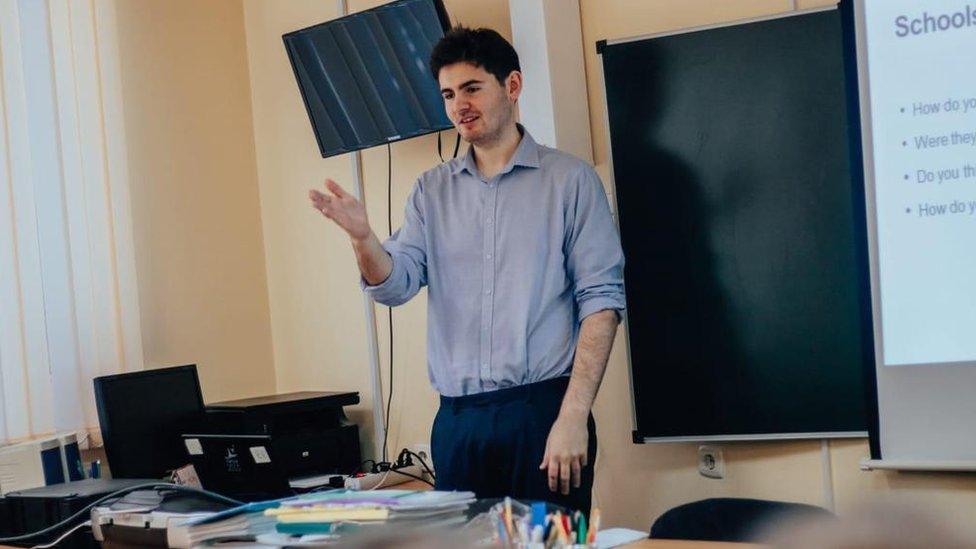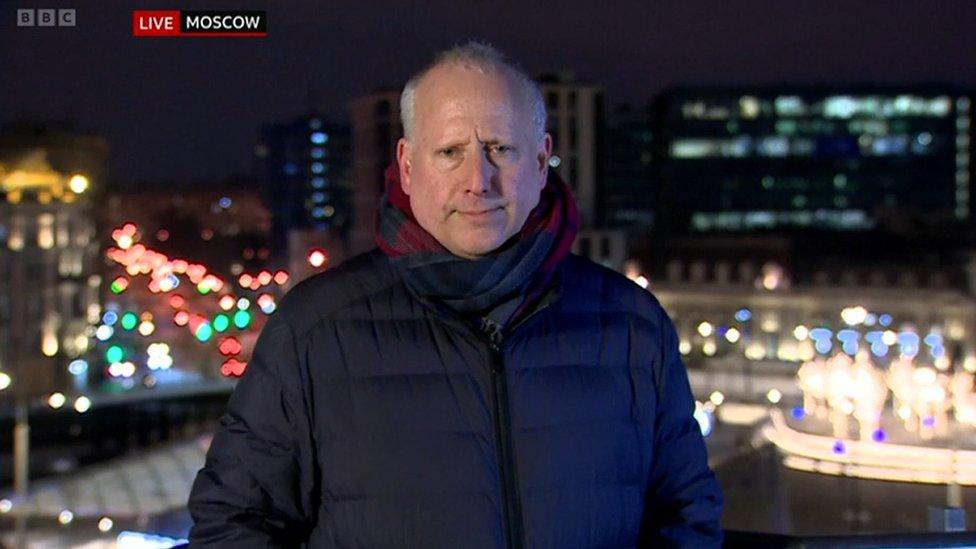Ukraine: Norfolk teacher returns from Russia after advice to leave
- Published

Ted Jennings taught English in schools in Kazan, Russia, prior to the war breaking out in Ukraine
A teacher who left Russia following government advice said he feared ordinary people there would suffer because of the war with Ukraine.
Ted Jennings, 22, from Acle in Norfolk, has returned from the Russian city of Kazan where he was teaching English.
He left after Russian friends warned Westerners could face hostility.
Mr Jennings caught a flight from Kazan, approximately 830km (440 miles) west of Moscow, to St Petersburg before crossing the border to Finland.
He went out to Russia in September and had hoped to continue teaching seven to 18-year-olds English until the end of the academic year in June.
He said when the invasion of Ukraine happened "nothing really changed in the first few days, which felt really normal".
"It was only after three or four days I started to see several Western governments advising foreign nationals to leave," he said.

Ted Jennings got a coach to St Petersburg from where he crossed into Finland
He managed to get on a flight on Wednesday 2 March to St Petersburg, spending a night there before getting on a coach to Finland.
Mr Jennings said the mood when he left Kazan was pretty normal with "tiny bits of small protests".
However in St Petersburg, he said anti-war sentiment was much more prevalent, with larger protests and graffiti opposing the invasion on walls and public signs.

Ted Jennings decided to leave Russia after friends warned Westerners could face hostility
Since leaving Kazan, friends "appalled" with what was taking place in Ukraine were now also worried about their own futures "now that sanctions have started to bite and the rouble is all over the place", he said.
"Everyone I knew [mostly young people] was massively against what's going on, the war, as they had access to social media and Western media.
"But in terms of now, the blocks they've put in place [for social media] are working.
"By the time I left couldn't access Facebook at all. I couldn't access Twitter."
Mr Jennings, who arrived back in the UK on Saturday morning, said since his return he had still been able to maintain contact with Russian friends via Whatsapp and Telegram.
"I just think it's so sad the people who will suffer the most are the ordinary people."

Ted Jennings said he saw several anti-war posters in St Petersburg, Russia

Find BBC News: East of England on Facebook, external, Instagram, external and Twitter, external. If you have a story suggestion email eastofenglandnews@bbc.co.uk, external
Related topics
- Published9 March 2022

- Published9 March 2022

- Published9 March 2022

- Published8 March 2022
